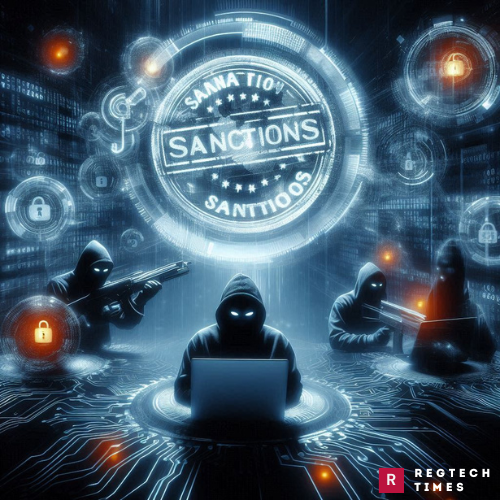In a decisive move to combat cyber threats, the United States has imposed sanctions on two leaders of the Russian hacktivist group Cyber Army of Russia Reborn (CARR). Announced by the U.S. Treasury Department, these sanctions target Yuliya Vladimirovna Pankratova, the group’s leader, and Denis Olegovich Degtyarenko, a primary hacker. This action highlights the ongoing cyber warfare threats posed by foreign entities and underscores the U.S. commitment to protecting its critical infrastructure.
The Threat of Cyber Army of Russia Reborn (CARR)
The Cyber Army of Russia Reborn (CARR), a relatively new yet highly active hacktivist group, has quickly made a name for itself through a series of high-profile cyberattacks. Their operations have not been confined to Russia; they have extended their reach to Ukraine, Europe, and, most alarmingly, the United States. The group’s activities have primarily targeted critical infrastructure sectors, including energy, transportation, and communications, posing severe risks to national security and public safety.
The Treasury Department’s statement emphasized the gravity of these threats, noting that CARR’s actions represent “an unacceptable threat to our citizens and our communities, with potentially dangerous consequences.” This characterization is not without basis. The potential damage from a successful cyberattack on critical infrastructure can range from economic disruption to loss of life, making the stakes incredibly high.
Details of the Sanctions
The sanctions against Pankratova and Degtyarenko aim to disrupt their operations by cutting off their access to financial resources and restricting their ability to travel. These measures aim to restrict the operational capabilities of Cyber Army of Russia Reborn (CARR) and convey a clear warning to other cybercriminals about the repercussions of targeting U.S. infrastructure.
Under Secretary of the Treasury for Terrorism and Financial Intelligence, Brian Nelson, highlighted the importance of these sanctions, stating, “CARR and its members’ efforts to target our critical infrastructure represent an unacceptable threat to our citizens and our communities.” By implementing these sanctions, the U.S. aims to prevent future attacks and safeguard its interests against harmful cyber activities.
Cyber Warfare: A Growing Concern
Cyber warfare has become an increasingly prevalent and concerning aspect of international conflict. The anonymity and borderless nature of the internet provide a fertile ground for cybercriminals and state-sponsored actors to conduct attacks with relative impunity. The U.S. has been a prime target for such activities, with numerous incidents over the past decade highlighting the vulnerability of its cyber infrastructure.
The imposition of sanctions on CARR’s leaders is part of a broader strategy to enhance cybersecurity and defend against these growing threats. This strategy includes not only punitive measures like sanctions but also proactive efforts to strengthen cybersecurity defenses, improve intelligence sharing, and foster international cooperation.
International Reactions and Implications
The international community has been watching closely as the U.S. takes a firm stance against cyber threats. Allies in Europe, many of whom have also been targeted by Cyber Army of Russia Reborn (CARR), are likely to support these sanctions and may impose similar measures. Such coordinated actions can amplify the pressure on cybercriminal groups and their sponsors, reducing their ability to operate effectively.
However, these sanctions also risk escalating tensions between the U.S. and Russia. Cyber activities have been a significant point of contention between the two nations, and actions against Russian entities can provoke retaliatory measures. Navigating this complex landscape requires a delicate balance of firmness and diplomacy to protect national interests while avoiding further conflict.
The sanctions against Yuliya Vladimirovna Pankratova and Denis Olegovich Degtyarenko mark a significant step in the U.S. efforts to combat cyber threats. While the immediate impact of these measures remains to be seen, they underscore the U.S. commitment to protecting its critical infrastructure and holding accountable those who threaten its security.
As cyber warfare continues to evolve, the U.S. and its allies must remain vigilant and adaptive. Strengthening cybersecurity defenses, enhancing international cooperation, and maintaining a robust deterrence posture will be crucial in addressing the ongoing and future challenges posed by cybercriminals and state-sponsored hackers alike.




